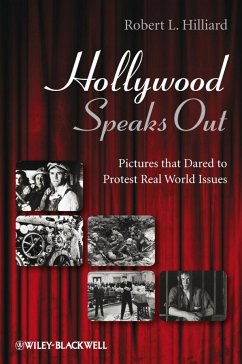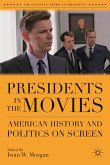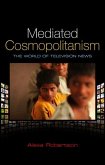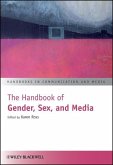In spite of its professed liberalism, Hollywood has always been risk-adverse, and most feature films deal with controversial issues long after the controversy is past. Hollywood Speaks Out explores that rare Hollywood feature that dared to tackle red-hot, social issues while America herself struggled to come to terms.
Hollywood Speaks Out explores that rare Hollywood featurethat dared to tackle red-hot, social issues whilst American societywas gripped by the convulsion and controversy they generated.
Explores why Hollywood has always been risk-adverse, and howmost feature flms deal with controversial issues long after thecontroversy is past
Organized around such important issues as poverty, racism,sexism, war, anti-Semitism, and homophobia
Discusses the relevance and the impact of feature films from Modern Times to WALL-E
Hollywood Speaks Out explores that rare Hollywood featurethat dared to tackle red-hot, social issues whilst American societywas gripped by the convulsion and controversy they generated.
Explores why Hollywood has always been risk-adverse, and howmost feature flms deal with controversial issues long after thecontroversy is past
Organized around such important issues as poverty, racism,sexism, war, anti-Semitism, and homophobia
Discusses the relevance and the impact of feature films from Modern Times to WALL-E








